AI Goes Creative! The Rise of Generative AI & Its Mind-Blowing Impact.
Witness the dawn of a new era of AI! Explore the capabilities of Generative AI, its potential to create groundbreaking art, scientific discoveries, and even write compelling stories. Buckle up, the future is about to get creative with AI tools!
Absolutely! Here’s a blog post that delves into the world of generative AI, peppered with my own thoughts and experiences:
I remember the day I first stumbled upon an AI image generator. At first, it was all fun and games – I asked it to create ridiculous things like “a cat riding a T-Rex into battle” or “an astronaut taking a selfie on Mars.” I laughed at the bizarre, sometimes nightmarish, results. But there was always a nagging feeling in the back of my mind: this technology was something else entirely.
Fast forward a few months, and I can barely keep up with the explosion of generative AI tools. It feels like every week there’s a new AI tool that can write a half-decent poem, churn out a marketing plan, or even write code. It’s both thrilling and, honestly, more than a little terrifying.
What is Generative AI?
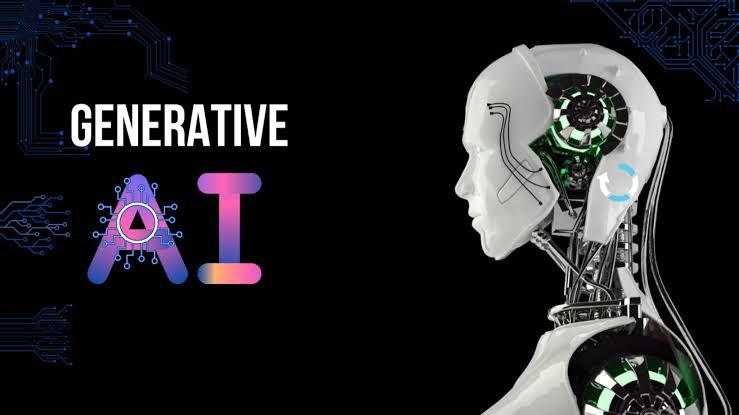
If you’re still in the dark about this whole generative AI thing, here’s a quick primer. The key difference from regular AI is that it doesn’t just analyze data – it creates new content.
Generative AI is trained on massive datasets of text, images, code, you name it. Instead of just spitting back information it’s been fed, it learns the underlying patterns and uses those patterns to generate entirely new creations.
That’s how something like ChatGPT can hold a semi-coherent conversation, or an image generator can paint an impressionistic landscape you’ve only described in words.
The Potential of Generative AI (and the Existential Dread)
As someone who works in a creative field, watching these developments makes my head spin.
On one hand, I’m fascinated by the possibilities. Imagine a writer being able to brainstorm ideas with an AI assistant, saving hours on those first messy drafts. Or how about a designer using an AI to generate countless logo concepts with just a few prompts?
The potential to streamline workflows and jumpstart creativity is enormous.
Then, a darker thought creeps in. What if these generative AI tools become so sophisticated that, well, they steal our jobs?
Why hire a human writer when you have an AI that can churn out content for pennies?
Why pay a freelance illustrator when you can have an AI generate images to your precise specifications instantly?
It’s not just about the competition; it’s questioning the very concept of human creativity and its value in a world where machines can mimic our processes.
A Personal Experience: When Generative AI Wrote a Poem Better Than Me
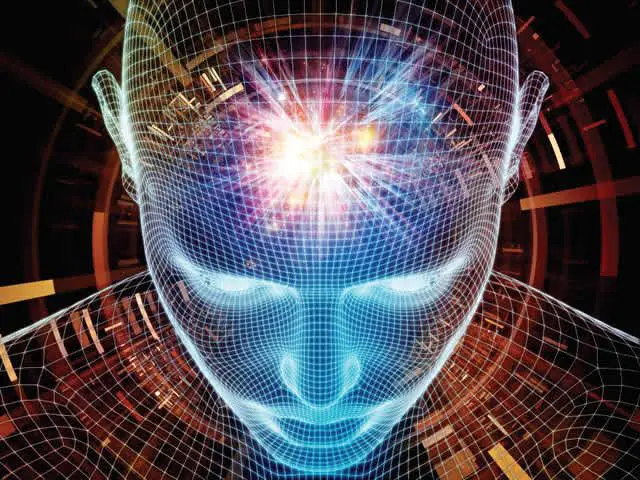
Okay, full confession time. I’m a bit of a secret poet. It’s a hobby, nothing serious, but it’s a way for me to express myself when regular prose fails. The other day, for a laugh, I decided to put an AI text generator to the test. I gave it the prompt, “a poem about heartbreak and lost summer love.” I expected an incoherent mess, something to mock mercilessly with my writer friends.
What came out wasn’t perfect by any stretch, but it wasn’t bad either. It had some striking imagery, the right emotional tone, and a few lines that genuinely moved me. I stared at the screen, feeling a mix of awe and a deep, sinking feeling. It was like a ghost whispering in my ear, “Is this the future of your passion?”
The Uncomfortable Questions We Need to Ask About Generative AI
The rise of generative AI raises a whole bunch of prickly questions:
- Authorship and Ownership: Who gets credit when AI is involved in artistic creation? Who owns the rights to AI-generated content?
- The Dangers of Misinformation: These tools are incredible at sounding authoritative, even when completely wrong. Imagine the spread of supercharged fake news…
- Deepfakes and Deception: What happens when anyone can generate a video of someone saying whatever they want, indistinguishable from the real thing?
- Bias and Inequality: Generative AI is only as good as the data it’s trained on. If that data is biased, the results will be too. Will it worsen existing societal divides?
We’re in Uncharted AI Territory, and It’s Time to Get Serious
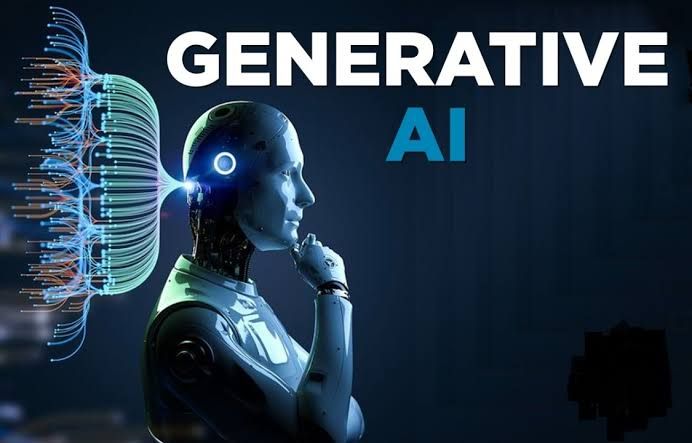
Let’s not kid ourselves – generative AI isn’t going away. It’s advancing faster than anyone anticipated. Playing around is all well and good, but the potential benefits and the serious risks demand a deeper conversation. I don’t have many answers, but here’s what I think:
The Good: Creativity Unleashed
Let’s start with the positives. Generative AI has the potential to be an incredible force for creativity and innovation. For someone like me, whose drawing skills peak at stick figures, AI image generators are a revelation. Need an illustration for a blog post? I can describe it, and within seconds, an AI generates several options. It opens up possibilities that weren’t there before.
Small businesses and individuals now have access to tools that once were the exclusive domain of big-budget studios. Think about independent filmmakers being able to create concept art for their sci-fi epic. Or musicians who can have album art generated based on the mood of their songs. It’s the democratization of creation, and I’m all for it.
The Bad: Disruption and Its Discontents
But with all great power comes the potential for misuse and a fair share of chaos. What happens to stock photo websites when anyone can generate perfect images for free? What about the livelihoods of copywriters when AIs can pump out product descriptions on demand? And let’s not even get me started on the deepfakes that are certain to become more sophisticated (and unsettling).
As these AIs become more capable, we must address the looming disruptions. It’s not about fear-mongering or halting progress. It’s about being prepared and finding ways to protect the livelihoods and skills that might become obsolete.
The Ugly: Where’s the Human Touch?
One of my biggest concerns is about the potential devaluing of human creativity. Yes, AIs can write a half-decent essay in record time – but does it have soul? Can an AI-generated story truly touch you the way a human-written one can? Can it evoke the same depth of emotion and insight?
For me, art is about the emotional connection, the imprint of the artist’s experience on the work. An AI might be able to replicate a style, but can it understand what it means to be human, with all our joys, fears, and contradictions? I’m not so sure.
The Experiment: Me vs. the AI
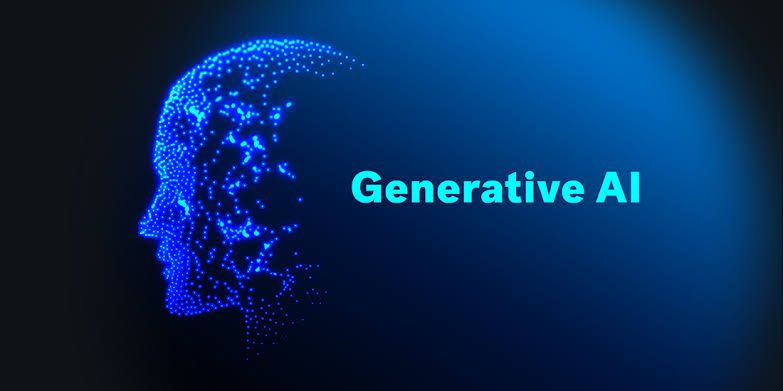
A little while ago, I set myself a challenge. I wrote a blog post on a topic I’m familiar with. Then, I asked a popular AI to write the same one. The results were…interesting. The AI’s piece was technically proficient. Good grammar, coherent structure, and it even included relevant facts and figures. However, it lacked a personal touch. It was like reading a well-researched Wikipedia entry.
My post, while perhaps not as grammatically pristine, had my voice woven into it. I included anecdotes, humor, and some off-topic ramblings that a human reader might find relatable (or at least mildly amusing). AI’s don’t quite capture that.
So, Where Do We Go From Here?
I wish I had the answers. The truth is, we’re in uncharted territory with generative AI. It’s a force to be reckoned with, but it’s up to us to control it, rather than let it control us. Here are some things I think are worth considering:
- Embracing collaboration: Instead of seeing AI as a replacement for human creativity, can we find ways to use it collaboratively? Imagine a writer using an AI to brainstorm ideas, or an artist using an image generator as a starting point for something entirely original.
- Regulation and ethics: We need smart regulations on how generative AI is developed and used. This is especially important regarding deepfakes and other technologies with the potential to cause harm.
- Emphasis on critical thinking: In an age where AI can spew out content, critical thinking skills become even more crucial. We need to teach people how to evaluate information, spot biases, and distinguish between human-created and AI-generated material.
- Redefining originality: Perhaps it’s time to expand our idea of what constitutes originality and creativity. In a world where AIs can produce high-quality work, perhaps the value shifts to the curator, the human who guides and shapes the AI’s output.
The rise of generative AI is a major turning point. It will change the way we create, consume information, and even the way we think about what it means to be human. While I have my fears, I’m mostly excited to see how this technology unfolds. One thing’s for sure – it’s going to be a wild ride.
Generative AI in My Life: My New Success Partner
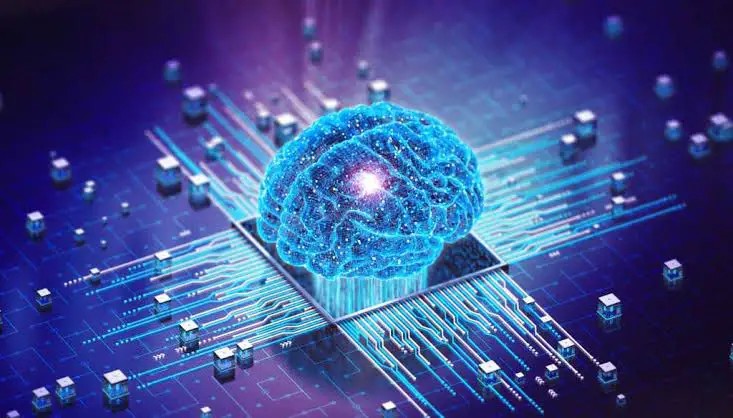
Okay, so I’ve established that generative AI hasn’t sent me running from a career change just yet. What I have discovered is how profoundly it might change day-to-day creative tasks—and I’m not just talking about writing and art.
- The Marketing Whiz-Kid: Imagine being a small business owner trying to create those catchy social media posts or marketing emails. AI can brainstorm taglines, write snappy ad copy, or even customize emails based on a client’s profile. It’s like having a marketing assistant at your fingertips 24/7.
- My New Coding Sidekick: I dabble in a bit of coding. Recently, I stumbled upon AI models that can generate or explain code. It’s revolutionized how I solve problems and learn new techniques. Turns out AI is a surprisingly good teacher for those tricky bits of syntax.
- The Idea Machine: When I’m stuck on a project, I’ve started turning to AI to spark inspiration. Need some outlandish product ideas? A list of potential blog post topics? Weird plot twists for a stuck story? AI is the ultimate brainstorming partner, throwing out suggestions that I’d never have thought of on my own.
The Future Isn’t Just Pretty Pictures
The most exciting (and maybe slightly terrifying) part of generative AI is how far it might reach beyond text and images.
- Music for the Masses: AI models can already create complete musical pieces of startling complexity. Could this lead to personalized soundtracks, background music for videos, or even democratize music production?
- Game Changer for the Gaming World: Imagine video games where the environments, characters, and even storylines aren’t pre-programmed but generated on the fly, tailoring themselves to your playstyle. It’s a world of endless possibilities and replayability.
- The Medical Potential: It’s still early days, but researchers are exploring the use of generative AI models to analyze medical images, assisting in diagnosis, or even designing personalized drug molecules. The potential to improve healthcare is immense.
Final Thoughts (For Now)
If there’s one thing I’ve learned, it’s that the rise of generative AI is about way more than a robot stealing your job. It’s a shift in how we create and how we understand creativity itself. Here’s my take:
We shouldn’t fear change, but embrace it with open eyes. We’re the ones who will define how we guide this technology, use it ethically, and navigate the murky waters around ownership. It’s both an exciting and challenging time to be a creator.
Generative AI might not be the death of creativity, but it certainly feels like the start of a thrilling new chapter. I, for one, am grabbing a metaphorical pen and popcorn and diving headfirst into this creative whirlwind. The best, I think, is yet to come.
Let me know what you guys think in the comments! Do you think generative AI is a force for good? A potential threat to creativity? I want to hear your opinions!
Generative AI FAQs
1. What exactly is generative AI?
- Generative AI refers to a type of artificial intelligence that can create new content – text, images, music, code, etc. Unlike traditional AI that analyzes existing data, generative AI learns the patterns of that data and uses it to produce original creations.
2. How does generative AI work?
- The heart of generative AI lies in complex machine learning models, mostly large neural networks. These models are trained on massive datasets of text, images, or relevant data, learning to identify underlying patterns and relationships. They then use that knowledge to generate new creative content similar to the training data.
3. What are some of the most popular generative AI tools?
- Text: ChatGPT (conversational AI), various text-writing and copywriting tools.
- Images: DALL-E, Midjourney, Stable Diffusion
- Other: AI for generating code, musical pieces, video game elements
4. Can generative AI replace human creativity?
- No, generative AI is not a replacement for human creativity but rather a powerful new tool. While it can generate amazingly creative output, it still needs human guidance, prompting, and the ability to discern a good result from a bad one. Think of it as a supercharged brainstorming session with an inexhaustible source of ideas!
5. Are there ethical concerns with using generative AI?
- Yes, several! Here are some big ones:
- Copyright and Ownership: Who owns content generated by AI? Who should be credited or compensated?
- Misinformation: AI tools can be used to create fake news, “deepfakes”, or other harmful content that’s difficult to identify as such.
- Bias: If the training data is biased, the AI model will also reflect those biases, potentially perpetuating harmful stereotypes.
6. What are some exciting potential applications of generative AI?
- Creativity: Expanding possibilities for writers, artists, and designers.
- Accessibility: Making creative tools more accessible to those without specialized skills.
- Medicine: Drug discovery, medical image analysis, and personalized treatments
- Entertainment: Personalized gaming experiences, interactive storytelling, custom music
- Business: Improved marketing and content creation, enhanced customer service
7. How can I learn more and get started experimenting with generative AI?
- Many of the popular tools have free versions or trials! Explore and get creating.
- Look for online resources, tutorials, and communities dedicated to specific AI tools or applications.
- Stay updated on the latest developments and ethical considerations surrounding this rapidly evolving field.
Discover more from Digital Wealth Guru
Subscribe to get the latest posts sent to your email.
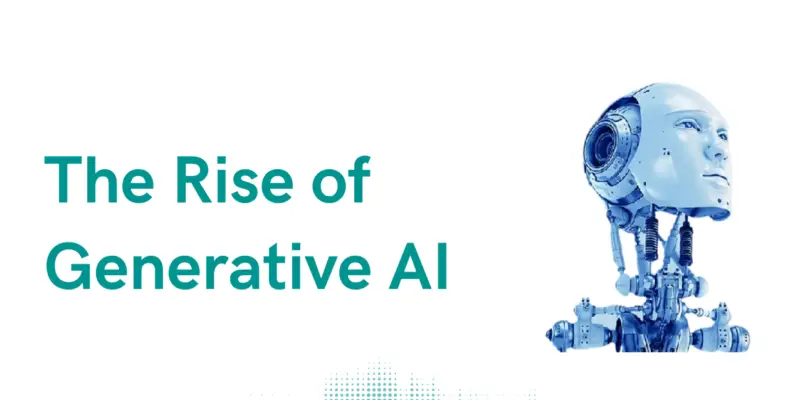

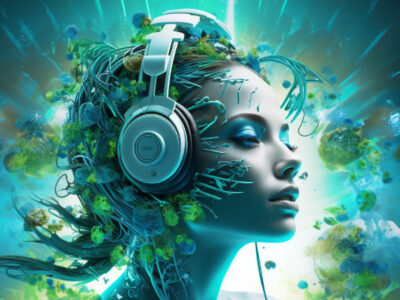
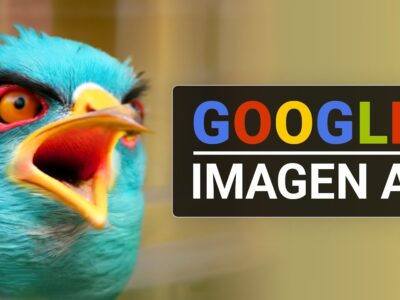
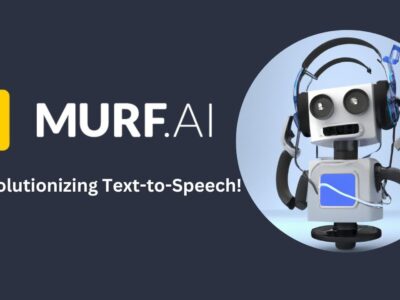
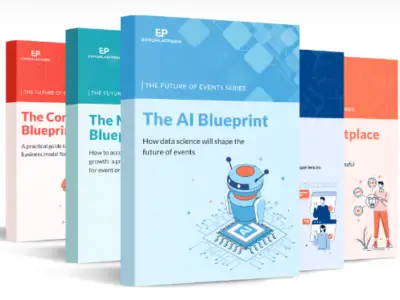
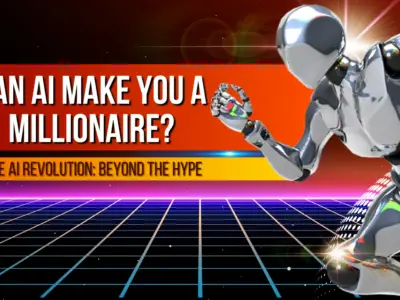
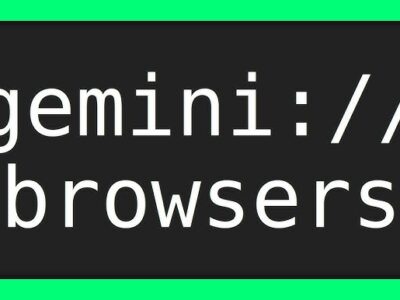
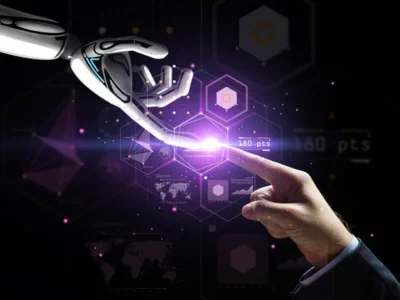

Comments